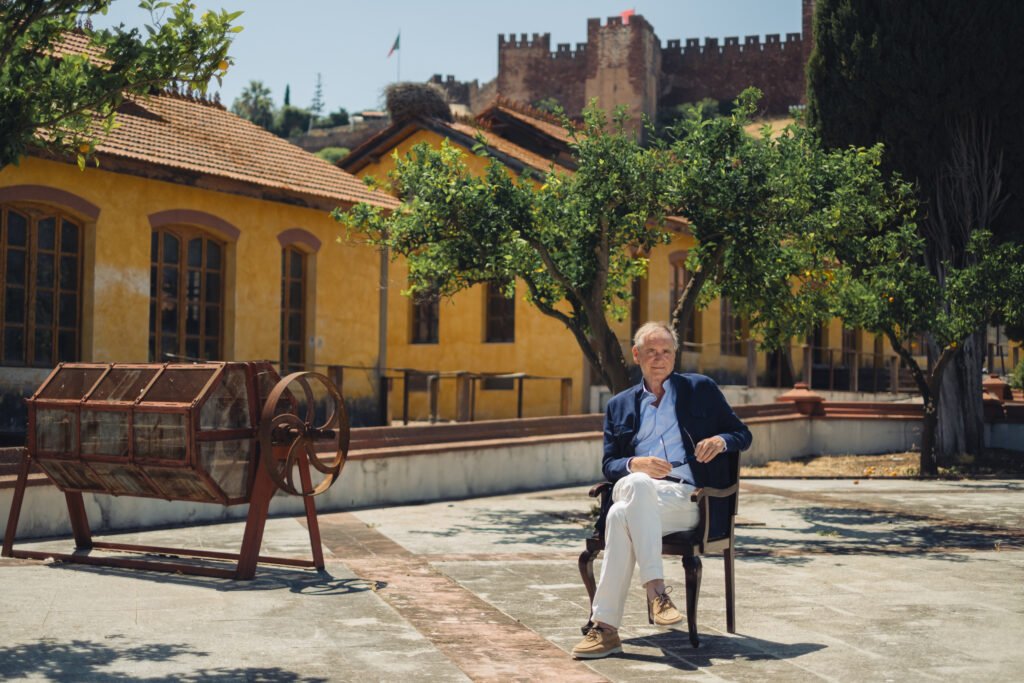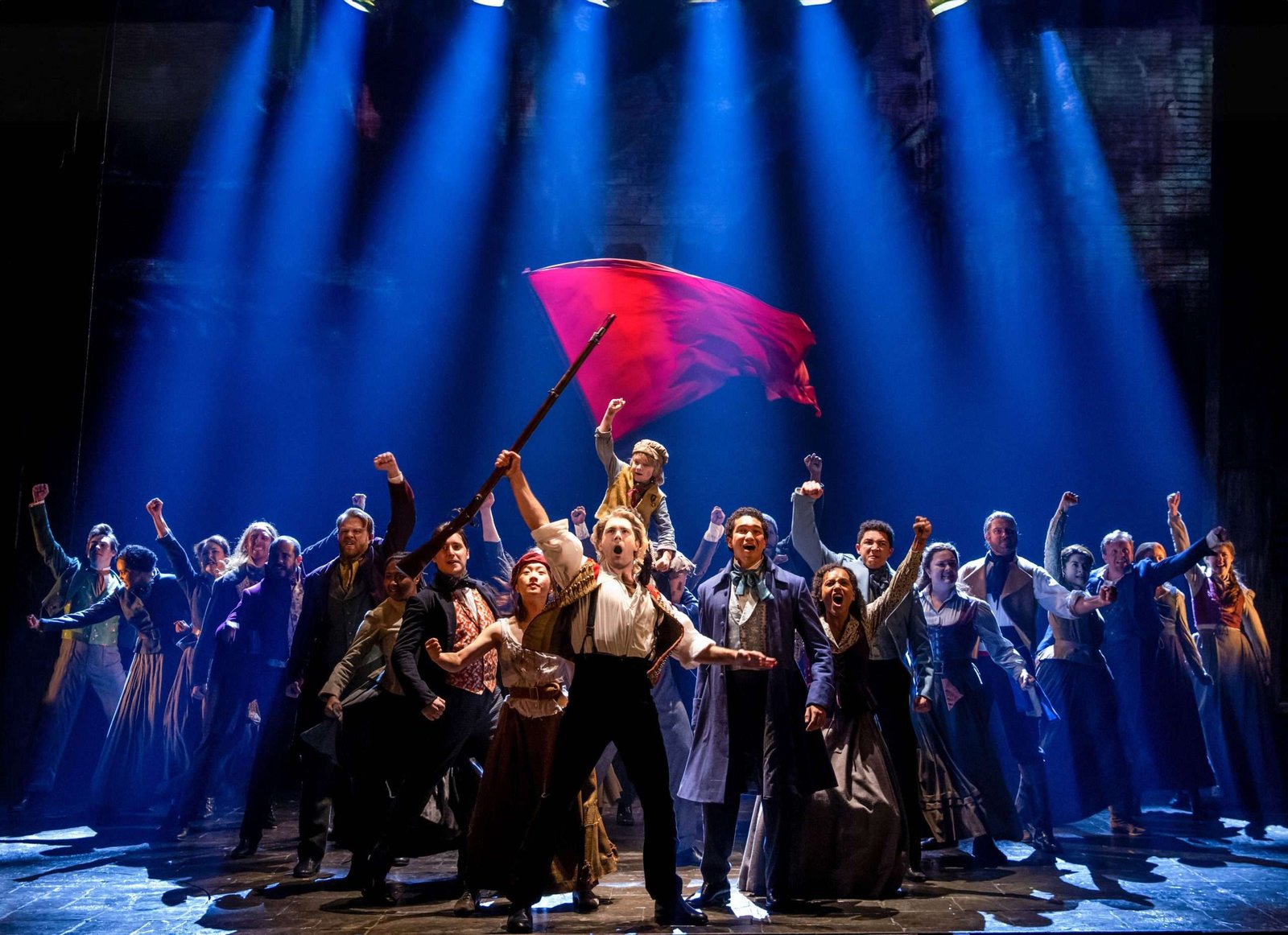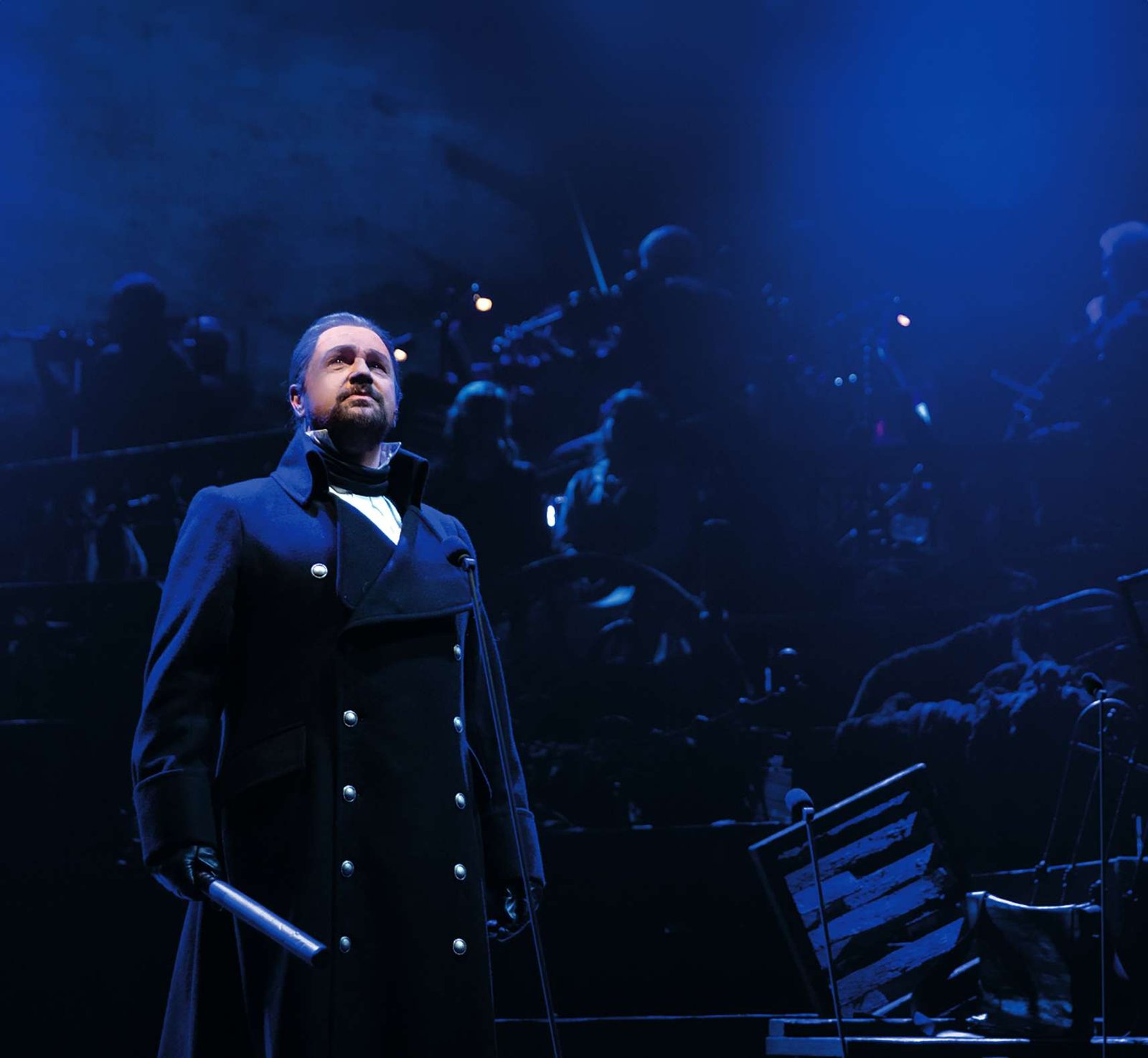With more than 15,000 performances under its belt, Les Misérables is the longest-running musical in London’s West End theatre history. As the production prepares to celebrate its fortieth anniversary, we take a look at what makes “Les Mis” so enduringly special.
It seems today that the theatre-going public is divided between those who have seen Les Misérables and those who are going to. If you’re not already a die-hard fan, you might be wondering what the fuss is all about. A drama – not even a comedy – about a bunch of French peasants set over two centuries ago, with a logo of the waif Cosette dressed in rags, sweeping a dusty floor with a large broom. It hardly shouts glamour from the rooftops.
But if you are one of the countless millions of fans worldwide already devoted to a record-breaking show that’s about to enter its fortieth year of entertaining the masses, you’ll know exactly what it is that makes Les Misérables the undisputed king of the theatre, what legendary British producer Cameron Mackintosh describes as ‘the only musical ever to be simultaneously a hit on stage, screen and in concert arenas’.
The key to that success, as with any good musical, lies not so much with the staging or the cast, or even the plot and direction, but with the music itself. And the score of Les Misérables – music by Claude-Michel Schönberg and lyrics by Alain Boublil – is a masterpiece. The solo and chorus songs are memorable and full of emotional vitality. Who could forget the heart-breaking sorrow of Fantine’s ‘I Dreamed a Dream’; the pain and loneliness of Eponine’s ‘On My Own,’ or the instantly recognizable revolutionary anthem ‘Do You Hear the People Sing’ belted out by the students at the ABC café as they prepare to launch a rebellion in the streets of Paris? These are what put Les Misérables on the map.
Les Misérables or ‘Les Mis’ (pronounced ‘Lay Miz’) doesn’t have the glittering show-biz backstory of other big West End hits like Jersey Boys, Grease, or Chicago. Its origins could not contrast more. Based on a colossal mid-nineteenth-century novel by Victor Hugo – one of the longest ever written, with 655,478 words in the original French – it hardly seems the stuff that blockbuster West End musicals are made of.
The story of the peasant Jean Valjean who gets put behind bars for 19 years for the crime of stealing a loaf of bread, his road to redemption, and subsequent involvement in the French Revolution doesn’t make the obvious choice for an uplifting evening of show tunes. When the production made its London debut in 1985 the critics were not exactly impressed. The Sunday Telegraph described Les Misérables as ‘a lurid Victorian melodrama produced with Victorian lavishness,’ while the Observer pulled no punches when it called the show ‘witless.’
Needless to say, the public disagreed with these early reviews, and today the London production of Les Misérables is all set to enter its fortieth year, making it the longest-running musical in London’s West End theatre history. Its 15,000 performances mean that it’s been staged more times than The Phantom of the Opera, Cats, The Lion King, Mamma Mia! and every other West End or Broadway show you care to mention. As the official Les Misérables website explains, the production has been seen by 130 million people worldwide, in 53 countries and in 22 languages. Not only that, in 2012 the stage show was made into a movie of the same name starring Hugh Jackman, Russell Crowe, and Anne Hathaway, which went on to gross $442 million, with Rolling Stone magazine describing it as ‘perfectly marvellous.’
Let’s be honest. There won’t be many of us who have had the time or determination to plough their way through Victor Hugo’s original 2,783-page novel. So for those who like to have an outline of the plot before they get to their theatre seats, this is how the story goes. Jean Valjean is a proud and decent man who is imprisoned for stealing bread to save his sister’s family from starvation. Once released, he is viciously pursued by police officer Javert for breaking the terms of his parole, but after an encounter with a bishop decides to turn his life around, and becomes a mayor and factory owner. His path crosses that of his poor employee Fantine whose daughter Cosette falls fatefully in love with revolutionary firebrand Marius just as Paris erupts in violence, while Valjean must make his final reckoning with Javert. As he dies, Valjean is joined by the spirits of the deceased revolutionaries, and they all sing together (for the second time) ‘Do You Hear the People Sing?’. When you consider that musicals are usually about cats or Swedish pop bands, this is seriously heavy stuff.
And yet the Les Misérables juggernaut shows no sign of slowing down, with Cameron Mackintosh’s ‘arena spectacular’ adaptation set off on a world tour of more than 15 countries. Specially created for larger venues and with a massive cast and orchestra, Mackintosh says that this grand-scale production has been a dream of his for years and ‘with Les Mis’ fortieth phenomenal year starts this October, there couldn’t be a better time for it to happen.’ With the Les Misérables movie currently on digitally remixed re-release in cinemas across the world, and with the London and North American productions still regularly breaking attendance records, ‘Les Misérables is a true phenomenon’ says Mackintosh sums up every fan’s opinion when he calls it ‘the People’s Musical.’












